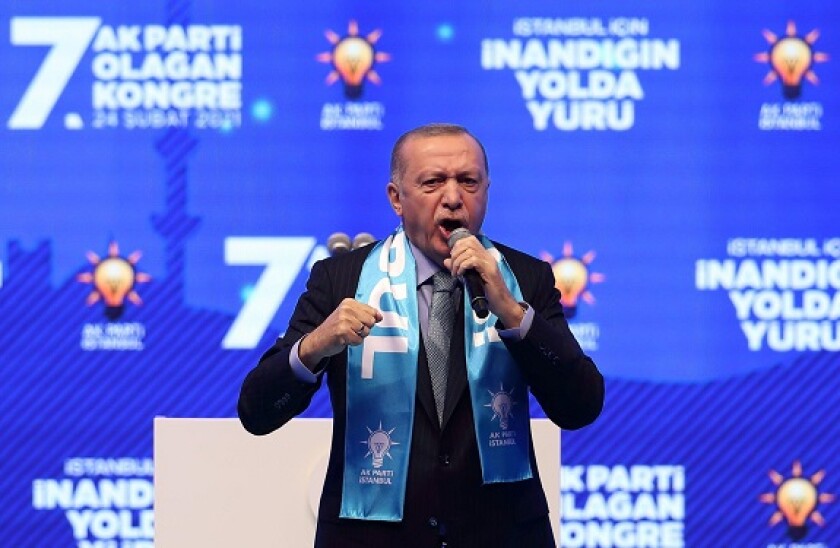President Recep Tayyip Erdoğan set off Turkey’s latest currency crisis over the weekend by firing the president of the country’s central bank for the third time in two years.
On 18 March, Naci Ağbal raised interest rates by 200bp. That was enough for Erdoğan, who has long railed against higher interest rates, and he relieved Ağbal of his job the next day.
The lira crashed and by Monday morning the country’s dollar bond spreads had widened at least 150bp.
Over the rest of the day, Turkey’s benchmark BIST 100 stock market index fell 10% as equity investors sold their positions in the country.
By Thursday, it had recovered slightly, but it was still 8% down from where it began the week.
Erdoğan’s monetary meddling has devastated Turkish ECM prospects. In 2018, before he began intervening in central bank policy, Turkey contributed 10.3% of EMEA emerging market ECM volume. The year before, it was 8%.
But this once healthy corner of the market has fallen behind countries such as Russia, Saudi Arabia, Poland, the United Arab Emirates and Kazakhstan as a hub for equity issuers.
Turkey contributed just under 3% of CEEMEA ECM volume in 2020. In 2019, it managed 0.3%. And there has not been a sizeable Turkish IPO since 2018.
The link is direct. An emerging market equity investor told GlobalCapital that Erdoğan’s interference in the central bank means Turkey remains one of the few countries where he will simply not invest.
Under Ağbal, the country was beginning to repair its economic reputation. During his term, the BIST 100 rose 38%. His dismissal reverses that momentum.
Turkey remains an near-perfect case study in how political micromanaging of central bank affairs can destroy a country’s investment reputation. As long as Erdoğan continues in this vein, Turkey’s IPO pipeline will remain close to empty.

